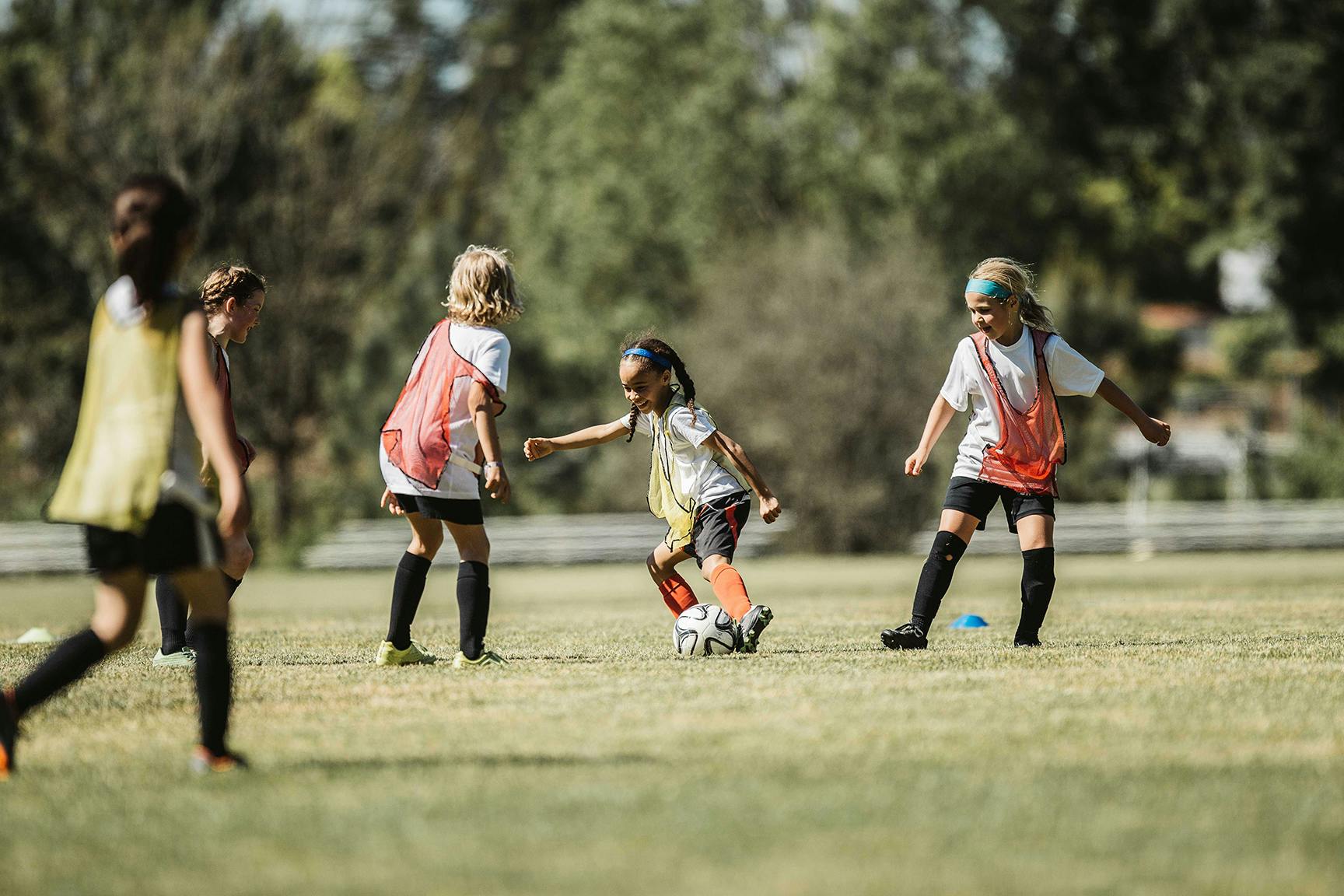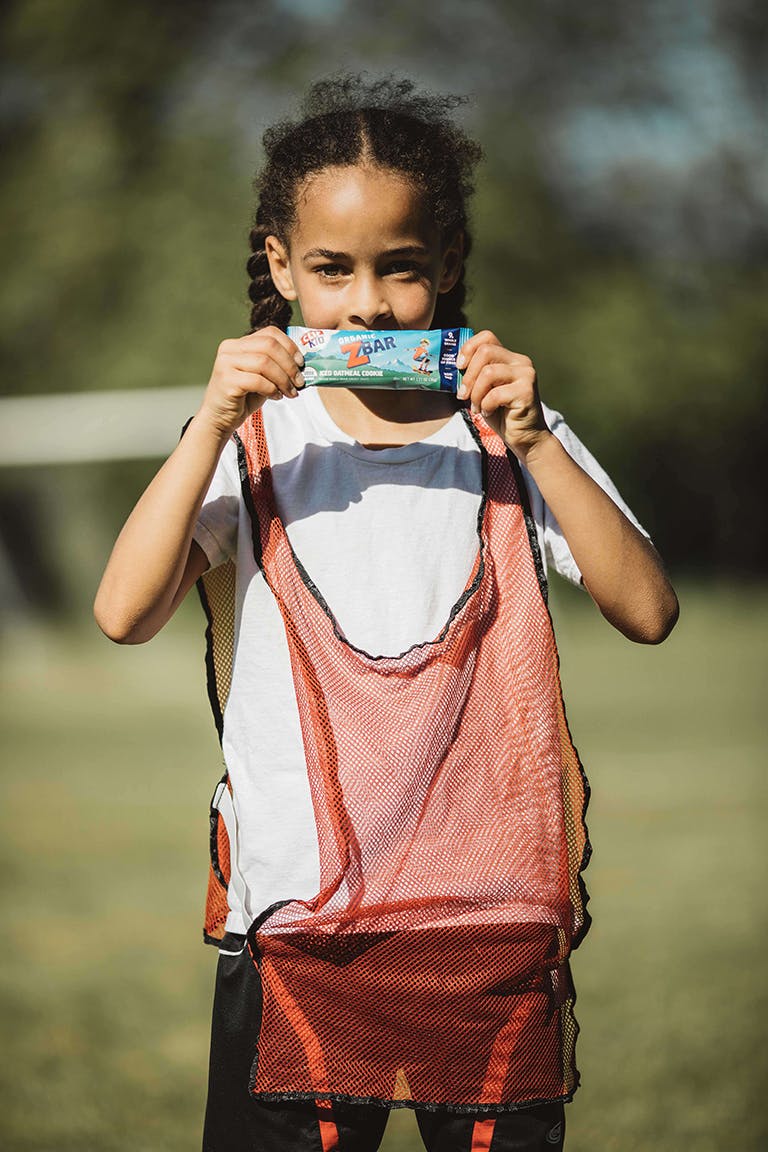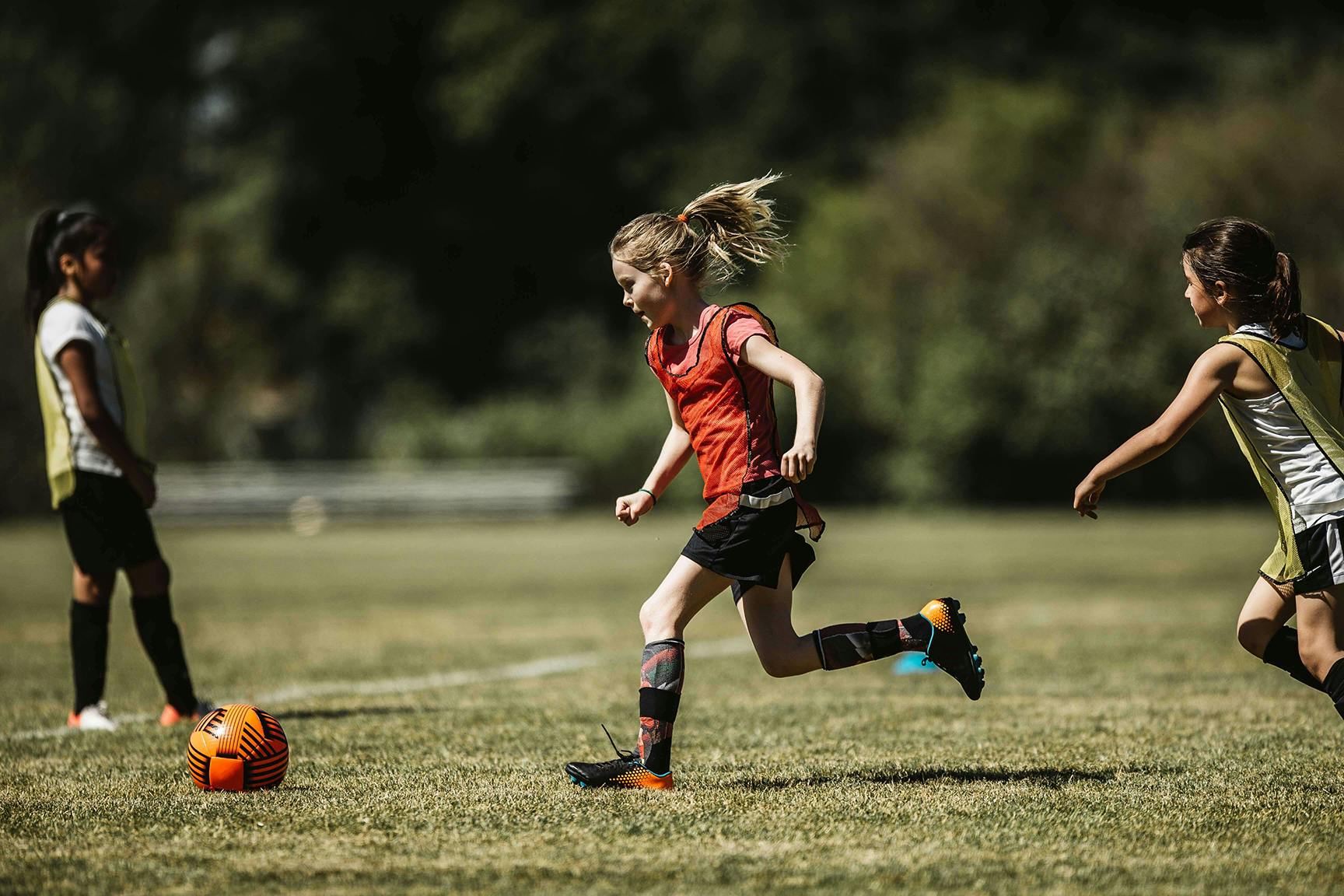The ideas and suggestions written below are provided for general educational purposes only and should not be construed as medical advice or care. The contents of this article are not intended to make health or nutrition claims about our products. Always seek the advice of a physician or other qualified health provider before beginning any physical fitness or health and nutrition related activity.
When it comes to food and eating, there are good habits and there are bad ones, even on the soccer fields. Over the years, I’ve had many parents reach out to me with questions about best snacks for half-time, as well as parents who are upset about the foods being offered to their children at practice and games.
What and how children eat may affect their athletic performance. Good eating habits promote health, overall wellness, and may influence the young athlete’s endurance, speed, and on field decisions. Bad habits can have the opposite effect, getting in the way of athletic achievement, and even growth.
Here are five ways nutrition can help athletic performance, on and off the soccer field.
How Nutrition Helps Young Soccer Players Perform
1. Food Helps Young Athletes Grow and Go
Food is the fuel that provides the essential nutrients and calories that aid in the heathy growth and development of young athletes. Without proper nutrition, growth can falter.1 As young athletes experience the demands of physical activity, food becomes a more central component to their athletic performance. A player who is well-fueled – eating balanced meals and snacks leading into training or competition – should feel energized and ready to perform.
2. Nutrients Help Athletic Performance
When it comes to sports, the best foods are those that are wholesome and nutritious. The sports diet should provide protein, carbohydrate, unsaturated fast and vitamins and minerals, which can be found in a variety of foods including fruits, vegetables, whole grains, dairy products (or nutritious non-dairy substitutes) and lean protein sources.1
Yet, there are many foods available to soccer players that aren’t nutritious and healthy. Candy, sweet muffins, donuts, chips, and cookies are not ideal food selections to sustain training or competition.
3. Food Affects Decision Making
The brain functions well when it is nourished, too. Eating well balanced, nutritious and regular meals and snacks helps provide the brain with nutrients, such as omega-3 fatty acids, carbohydrates and protein, which can help promote optimal brain performance. When soccer players come to practice on an empty stomach or fail to fuel for games with nutritious food, he or she may not be prepared to perform their best.
4. Hydrated Muscles Perform Better
Eating juicy foods such as fruit, and drinking plenty of water throughout the day helps young athletes prevent dehydration. When young athletes are dehydrated, they may get headaches, feel tired and sluggish, or even feel hungry. Muscle cramps may also occur when young athletes are dehydrated, especially in hot, humid weather, which can slow down any young athlete. One study showed a progressive level of dehydration as young soccer athletes moved through a soccer training camp.2 The athletes became increasingly dehydrated each day, presumably because they did not adequately rehydrate after practices.
5. An Eating Schedule is Key to Success
Food and fluids are certainly central to athletic performance, but the timing of eating matters also. Bodies perform best when they have access to nutrients in intervals throughout the day. Evenly distributing protein and quality carbs across meals and snacks in a routine eating schedule may facilitate all athletes capitalizing on balanced nutrition.3 This can be best achieved when meals and snacks are nutrient-dense and balanced, occurring every three to four hours.
Resources
- Smith JW, Holmes ME, McAllister MJ. Nutritional Considerations for Performance in Young Athletes. Journal of Sports Medicine. 2015;2015:734649. doi:10.1155/2015/734649.
- Arnaoutis G, Kavouras SA, Kotsis YP, Tsekouras YE, Makrillos M, Bardis CN. Ad libitum fluid intake does not prevent dehydration in suboptimally hydrated young soccer players during a training session of a summer camp. Int J Sport Nutr Exerc Metab. 2013 Jun; 23(3):245-51.
- Beck KL, Thomson JS, Swift RJ, von Hurst PR. Role of nutrition in performance enhancement and postexercise recovery. Open Access Journal of Sports Medicine. 2015;6:259-267. doi:10.2147/OAJSM.S33605.



